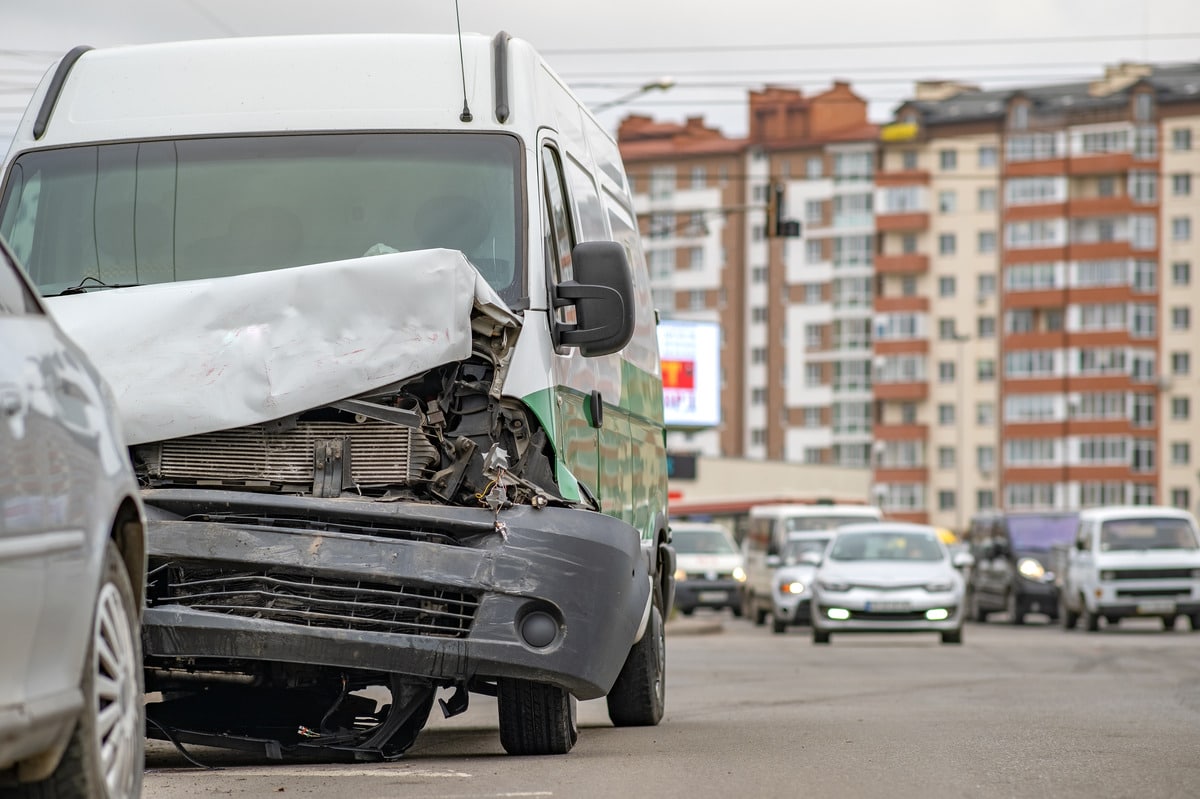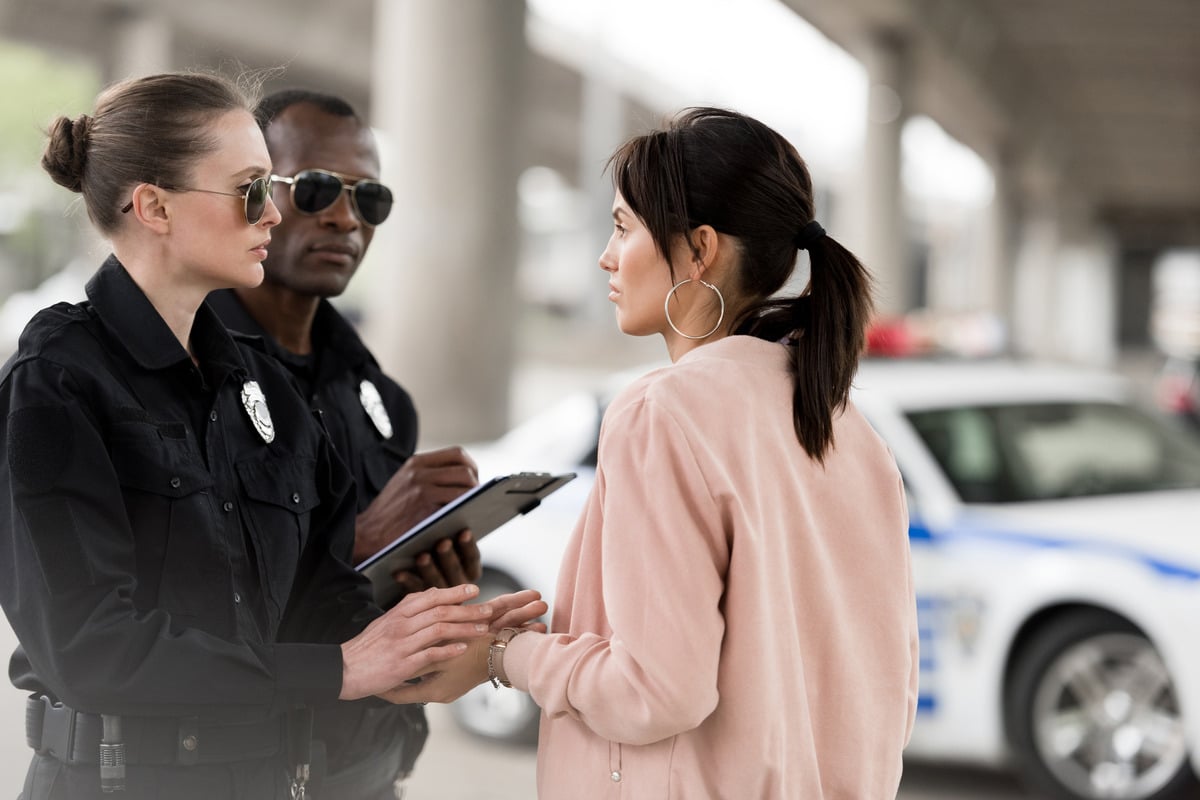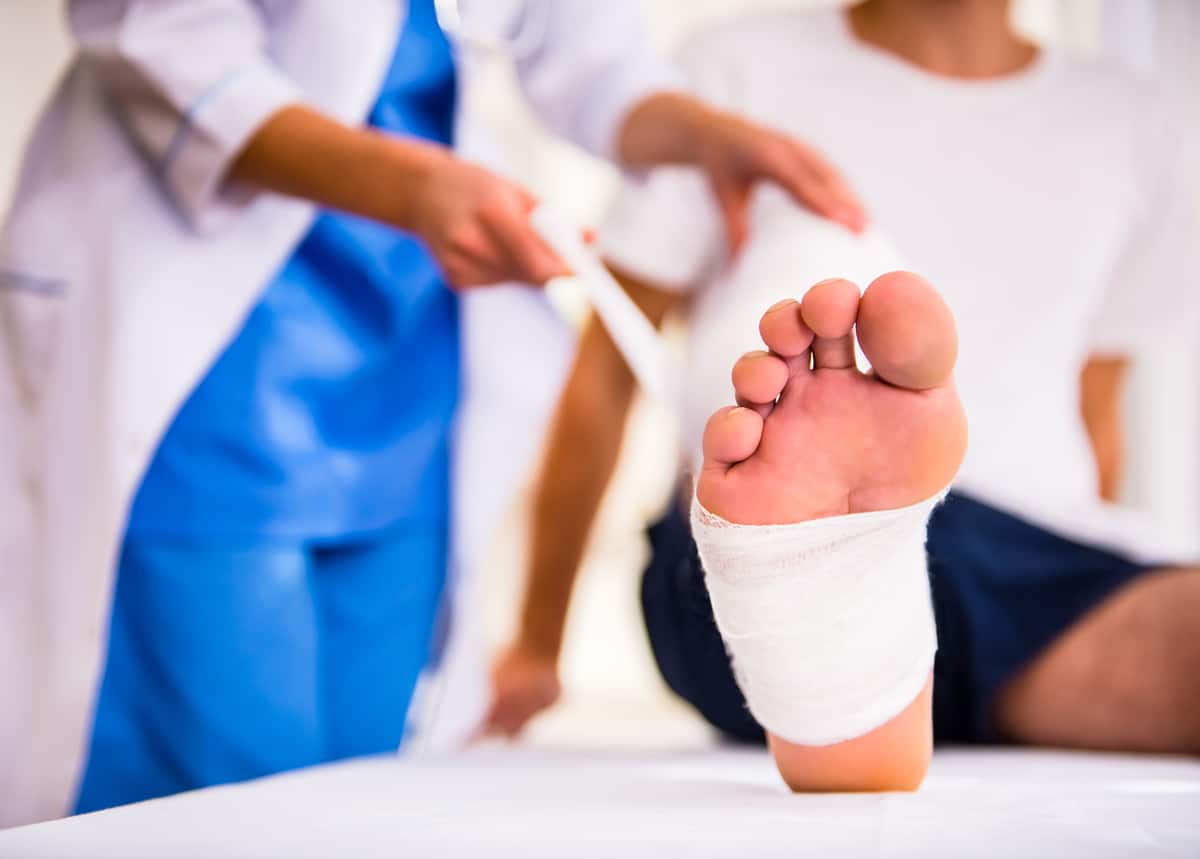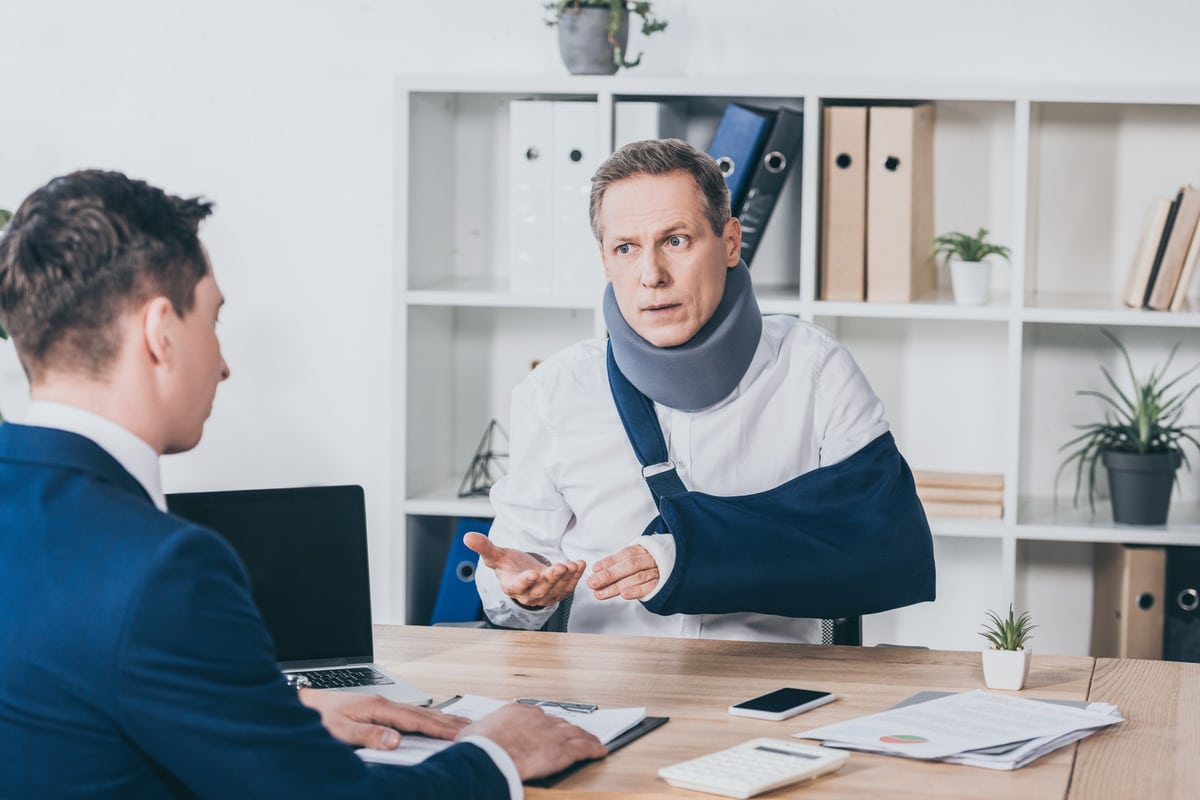Legal Steps to Take After a Car Accident with a Commercial Vehicle
Table of Contents:
- Introduction: Understanding Commercial Vehicle Accidents
- Immediate Steps After the Accident
- Common Causes of Accidents Involving Commercial Vehicles
- Determining Liability in Commercial Vehicle Accidents
- Differences Between Personal Car Accidents and Commercial Vehicle Accidents
- Importance of Gathering Evidence
- Role of Insurance Companies and Policies
- Why You Should Seek Medical Attention Immediately
- Calculating Damages in a Commercial Vehicle Accident
- Working with a Personal Injury Lawyer
- The Legal Process and Timeline
- How Roxell Richards Injury Law Firm Can Help
- Conclusion & Strong Call to Action
Introduction: Understanding Commercial Vehicle Accidents
Accidents involving commercial vehicles are often more complex than standard passenger car accidents. Commercial vehicles typically include trucks, delivery vans, buses, and other vehicles used for business purposes. Because these vehicles are often larger, heavier, or subject to stricter regulatory requirements, a car accident commercial vehicle case can involve multiple layers of liability, stricter insurance policies, and more significant damages.
Whether you’ve been injured or suffered property damage, it’s critical to understand your rights and responsibilities. Commercial vehicle accidents involve big companies, corporate insurance policies, and complicated legal battles. From the moment the accident occurs to the final settlement or verdict, knowing the proper steps ensures you protect your legal rights and gather the evidence needed for a strong claim.
Immediate Steps After the Accident
What you do in the moments and hours following a car accident commercial vehicle collision can dramatically affect the outcome of any legal claim you pursue. Here’s what you should do right away:
1. Check for Injuries and Call 911
- Before anything else, make sure everyone is safe. If you or anyone else is injured, call emergency services immediately. Even if injuries appear minor, it’s wise to get checked by medical professionals to rule out internal injuries or delayed symptoms.
2. Move to a Safe Location
- If possible, move your vehicle out of traffic. Turn on your hazard lights to alert other drivers. If you can’t move your vehicle, stay inside with your seatbelt on until help arrives if it’s safe to do so.
3. Call the Police

- Contact the police and file a report. This official documentation can be crucial when filing claims and determining fault later. Police can also help manage the scene, take witness statements, and gather evidence.
4. Exchange Information
- Collect contact and insurance details from all parties involved. You should also note the employer’s name and company details for a commercial vehicle. Be sure to gather the driver’s commercial license information, as commercial drivers are held to specific license requirements.
5. Document the Scene
- Take pictures or videos of the damage, road conditions, and any visible injuries if you can. Document the license plates of all vehicles involved and try to record any witness statements. This evidence can be highly valuable when dealing with insurance companies and legal proceedings.
6. Avoid Admitting Fault
- During this high-stress moment, it’s easy to blurt out an apology or assume blame. However, these words can be used against you later. Stick to the facts and let the investigation determine who’s at fault.
Common Causes of Accidents Involving Commercial Vehicles
Understanding the common causes of commercial vehicle accidents can provide insight into where the fault may lie and what you should look for when gathering evidence:
1. Driver Fatigue
-
- Commercial drivers often have tight schedules, which may compel them to drive longer hours than recommended.
2. Distracted Driving
-
- Using mobile devices, eating, or adjusting navigation systems while driving can lead to disastrous accidents.
3. Poor Vehicle Maintenance
-
- Commercial vehicles are required to undergo regular inspections. When these inspections are neglected, vehicle failures such as tire blowouts or brake malfunctions can occur.
4. Overloading Cargo
-
- Improperly loaded or overweight cargo can make the vehicle more challenging to control and increase the likelihood of accidents.
5. Aggressive Driving or Speeding
-
- Pressures to meet delivery deadlines can lead some commercial drivers to speed, tailgate, or engage in other aggressive behaviors.
Determining Liability in Commercial Vehicle Accidents

- Driver Liability: The commercial driver may be directly responsible if they were negligent (e.g., speeding, driving under the influence, or distracted driving).
- Company Liability: The company that employs the driver could be liable if it did not properly train the driver, failed to maintain the vehicle, or enforced unrealistic schedules that led to fatigue.
- Manufacturers or Maintenance Crews: Other parties might share liability if a vehicle part malfunctions due to manufacturing defects or poor maintenance.
- Government Entities: In cases involving poorly maintained roads, liability may extend to government agencies responsible for road conditions.
Differences Between Personal Car Accidents and Commercial Vehicle Accidents
While many of the immediate steps following any car accident are similar, accidents involving commercial vehicles differ in key ways:
1. Higher Insurance Coverage
-
- Given the increased risks and potential for serious injuries, commercial vehicles are often covered by policies with higher limits.
2. Involvement of Multiple Parties
-
- Beyond the driver, you may need to negotiate with employers, insurance companies, or manufacturers.
3. Regulations and Compliance
-
- Commercial vehicles must follow state and federal regulations. Any violations of these rules can heavily influence the case.
4. Complex Liability Chain
-
- An accident might expose driver negligence, employer oversight, maintenance faults, or design flaws.
5. Greater Damages
-
- Due to their size and weight, commercial vehicles, such as large trucks, can cause more extensive damage. Resulting injuries and property damage might be severe.
Importance of Gathering Evidence

- Proving Negligence: Photographs, witness statements, and police reports help illustrate how the accident occurred and who was at fault.
- Establishing Damages: Medical records and repair estimates determine how much compensation you may receive.
- Identifying Multiple Defendants: Some evidence might point to employer negligence, while other documentation could reveal manufacturer defects.
Key Forms of Evidence:
- Police reports
- Driver’s logbooks and work schedules (especially crucial in commercial trucking cases)
- Maintenance records for the commercial vehicle
- Witness statements and contact information
- Dashcam or surveillance footage (if available)
Role of Insurance Companies and Policies
Insurance companies represent large entities with skilled legal teams in commercial vehicle accidents. These insurers often have vast resources and can be more aggressive than typical car insurance providers. They may look for ways to minimize or outright deny claims.
Key Points About Insurance Policies in Commercial Vehicle Cases:
- Higher Policy Limits: These often exceed those in personal car accidents, which can result in more significant settlement amounts if you prove liability.
- Investigation Resources: Commercial insurers frequently conduct thorough investigations. Expect requests for recorded statements, medical records, and more.
- Negotiation Tactics: Insurance adjusters may employ various strategies to reduce payouts, from questioning your injuries to offering quick, low settlements.
Why You Should Seek Medical Attention Immediately

Benefits of Prompt Medical Attention:
- Protect Your Health: Catch hidden injuries early and avoid long-term complications.
- Document Your Injuries: Medical records prove the injury’s severity and cause.
- Strengthen Your Legal Case: Insurance adjusters are less likely to dispute injuries that have been quickly diagnosed and documented.
Calculating Damages in a Commercial Vehicle Accident
Calculating damages goes beyond just your hospital bills or the cost of fixing your car. You could be entitled to various forms of compensation:
- Medical Expenses include emergency room visits, surgeries, follow-up appointments, medications, and any rehabilitation costs.
- Lost Wages: You can claim lost income if you’ve missed work due to your injuries. In severe cases, you may also claim future lost earning capacity.
- Property Damage covers repairing or replacing your damaged vehicle or personal property.
- Pain and Suffering: Compensation for physical pain, emotional distress, and mental anguish related to the accident.
- Punitive Damages: In cases where the defendant’s actions were incredibly reckless, a court may award punitive damages to punish wrongdoing and deter future negligence.
Working with a Personal Injury Lawyer

- Conduct Investigations: Lawyers can obtain driver logs, maintenance records, and additional evidence you may not easily access.
- Negotiate With Insurers: Seasoned attorneys recognize lowball settlement offers and fight for fair compensation.
- Manage Paperwork and Deadlines: An attorney ensures you meet statutory filing deadlines, preventing you from losing your right to sue.
- Represent You in Court: If negotiations fail, your attorney can file a lawsuit and represent you during trial.
- Provide Peace of Mind: You can focus on recovery, knowing a professional is safeguarding your legal rights.
The Legal Process and Timeline
While every car accident commercial vehicle case is unique, most follow a general timeline:
- Initial Consultation and Investigation: You meet with a lawyer to discuss your case, and they begin gathering evidence.
- Demand Letter and Negotiations: After evaluating damages, your attorney sends a demand letter to the insurance company. Negotiations often continue for weeks or months.
- Filing a Lawsuit: If negotiations stall or you can’t reach a fair settlement, your lawyer files a formal complaint in court.
- Discovery Phase: Both sides exchange information, interview witnesses, and gather expert testimony.
- Pre-Trial Motions and Mediation: Attorneys may file motions to resolve specific issues before trial. Mediation or arbitration might also occur.
- Trial: If mediation doesn’t resolve the case, it proceeds to trial, where a judge or jury determines liability and the amount of damages.
- Settlement or Judgment: The case ends in a negotiated settlement or a court judgment.
How Roxell Richards Injury Law Firm Can Help
At Roxell Richards Injury Law Firm, we’ve seen firsthand how overwhelming a car accident commercial vehicle collision can be for victims and their families. We focus on delivering compassionate, aggressive representation. Here’s what you can expect from our legal team:
- Personalized Attention: We treat every client like family, ensuring open communication and regular case updates.
- Proven Experience: Our legal professionals have tackled numerous commercial vehicle accident cases, giving us a solid grasp of local and federal regulations.
- Resourceful Investigations: We know where to look and who to consult for evidence that fortifies your case—accident reconstruction specialists or maintenance experts.
- Tenacious Negotiation and Litigation: From out-of-court settlements to jury trials, we fight tirelessly to secure the compensation you deserve.
- Client-Centered Approach: Your needs come first. We’re not just here to win your case but to ensure you can move forward with your life.
Conclusion & Strong Call to Action
Ready to Take Action?
If you or a loved one has suffered due to a car accident involving a commercial vehicle, reach out to us at Roxell Richards Injury Law Firm today. Our dedicated legal team is here to provide a no-obligation consultation to discuss your case and guide you on the best legal options available. Call us now and let our experienced attorneys fight for the justice and financial recovery you deserve. Your path to healing starts with a straightforward step: Contact Roxell Richards Law Firm today for a free consultation, and let us stand by your side every step.
Roxell Richards Injury Law Firm
Houston, TX z7057
Phone: (713) 974-0388
Fax: (713) 974-0003
Frequently Asked Questions
What qualifies as a commercial vehicle in a car accident claim?
A commercial vehicle includes trucks, buses, delivery vans, and other vehicles used for business purposes. These vehicles often operate under stricter regulations and can involve more complex legal and liability issues than standard passenger cars.
Do I need a lawyer after a car accident with a commercial vehicle?
It’s not legally required, but a lawyer is highly recommended. Commercial vehicle cases often involve multiple parties, corporate insurers, and complicated liability issues that require legal expertise to navigate effectively.
Can I still recover compensation if the commercial driver wasn’t at fault?
Yes. You may be entitled to compensation from the driver’s employer or their commercial insurance policy if another party was negligent, even if the driver personally wasn’t at fault
What types of compensation can I seek after a commercial vehicle accident?
Injured victims can seek compensation for medical expenses, lost wages, property damage, pain and suffering, and in some cases, punitive damages depending on the severity and circumstances of the crash.
What evidence is important in a commercial vehicle accident case?
Critical evidence includes police reports, witness statements, photos of the scene, driver logs, vehicle maintenance records, and event data recorder (black box) information if available.

